High Court overturns Zainab Abdirahman-Khalif’s appeal for being Islamic State member, her sentence to resume
The Adelaide woman who, prosecutors claimed, tried to join the Islamic State terror group has been rearrested and is back in prison after Australia’s highest court overturned her acquittal.
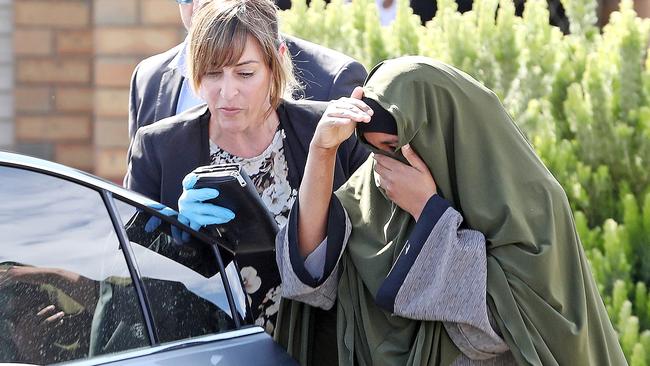
True Crime
Don't miss out on the headlines from True Crime. Followed categories will be added to My News.
The historic acquittal of Adelaide terrorism suspect Zainab Abdirahman-Khalif has been overturned by the High Court – reactivating her prison sentence.
As first reported by The Advertiser, the former nursing student surrendered herself to federal authorities on Wednesday morning after the judgment was handed down at 9.30am SA time.
She has now been conveyed to the Adelaide Women’s Prison, where she will serve the remaining 205 days of her three-year term for attempting to join Islamic State.
However, Abdirahman-Khalif’s counsel will seek a hearing with the Parole Board to argue their client should not have to serve any more time behind bars.
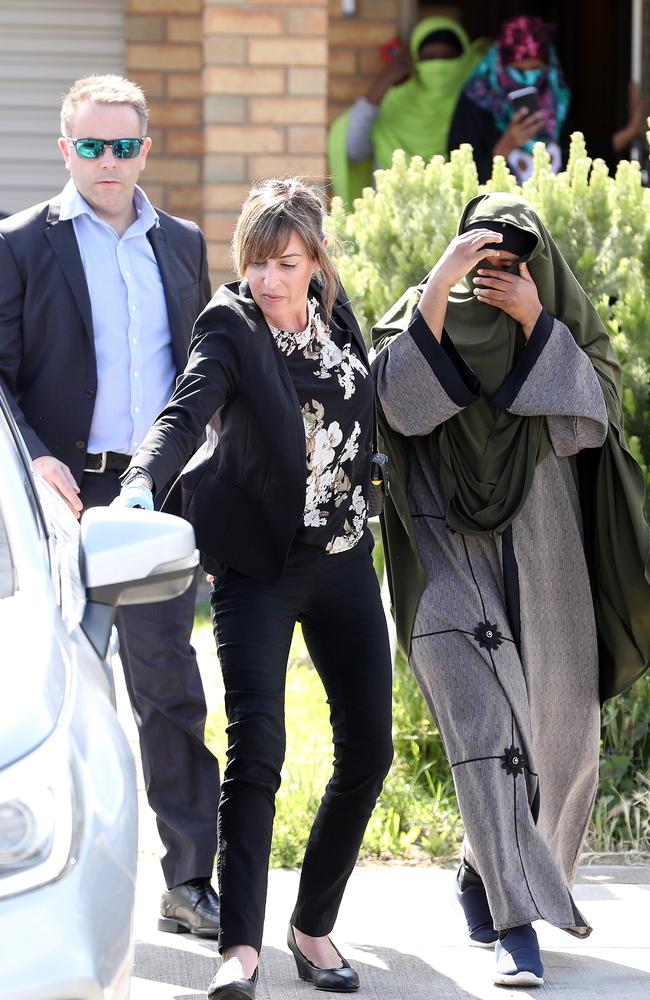
They will assert the time she served both waiting for trial and prior to her acquittal was sufficient, and her term of parole should begin immediately.
That submission is likely to face stiff opposition from the Federal Government, which has previously blocked any parole efforts – stifling her access to anti-radicalisation programs.
And any Parole Board hearing is unlikely to be fast-tracked, meaning it could be weeks or even months away.
Abdirahman-Khalif’s solicitor, James Caldicott, said the court’s decision was disappointing.
“My client is incredibly devastated, gutted, as are the members of her family and those in her legal team,” he said.
“Imagine having been acquitted, spending a year re-integrating back into the community and then being told you have to go back to prison... that’s just devastating.
“She is entitled to apply immediately for parole, but that is a decision for the Board.”
In its decision, the High Court overturned a majority ruling, by SA’s Court of Criminal Appeal, that Abdirahman-Khalif should be acquitted.
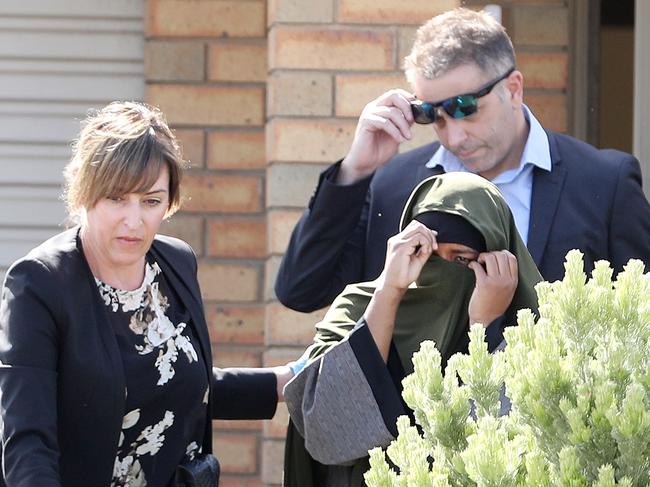
The SA court ruled the federal legal definition of being a “member” of a terrorist organisation was too broad, and prosecutors had failed to prove their case.
In a majority decision of its own, the High Court disagreed.
“The offence of taking steps to become a member of a terrorist organisation allows for the practical difficulties associated with the penetration of the unstructured and opaque nature of terrorist organisations to be surmounted by proof falling short of evidence establishing the process by which a terrorist organisation recruits, inducts and accepts members,” it said in its judgment summary.
“The majority further held that the trial judge neither conflated the physical and mental elements of the offence nor failed to give the jury sufficient guidance as to what constituted steps to become a member of a terrorist organisation.”
The judgment, which can be read in full below, is being closely scrutinised by lawyers and legal academics across the country.
Already, some have raised concerns the ruling could be used to loosen the definition of membership in other organisations – such as outlaw gangs – in future cases.
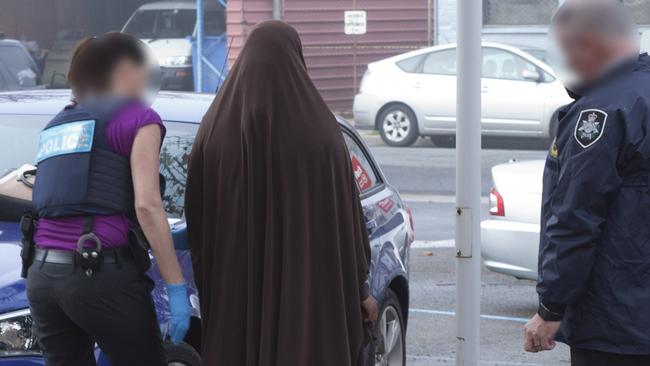
HISTORY OF A TERRORISM CASE
Abdirahman-Khalif, 25, of Mansfield Park, pleaded not guilty to one count of being a member of a terrorist organisation between 2016 and 2017.
Prosecutors alleged she had IS propaganda videos, including beheadings, on her phone and sent a text saying it was her “destiny” to be a “Muwahideen” in Adelaide.
They played recordings that allegedly captured Ms Abdirahman-Khalif singing pro-IS songs and swearing an oath of loyalty to the group.
Jurors were told she tried to leave SA for Turkey, without her family’s knowledge and with just hand luggage and $170, to join the organisation.
Her counsel refuted the allegations, telling jurors they must not be swayed by mere suspicion nor “overawed” by the “spin” put upon the evidence by Federal authorities
Abdirahman-Khalif was found guilty and, in April 2019, sentenced to a minimum of two years and three months behind bars.
However, due to the time she had already served waiting for her trial, she was eligible to seek release on parole from August 2019.
While in custody, Abdirahman-Khalif was denied placement in a prison-based anti-deradicalisation program because of the Federal Government.
Attorney-General Christian Porter blocked both it and her parole bid, saying there was “no evidence” she had “satisfactorily disengaged from extremist ideology”.
Abdirahman-Khalif’s family and community stepped in at that stage, providing anti-radicalisation assistance through pastoral care.

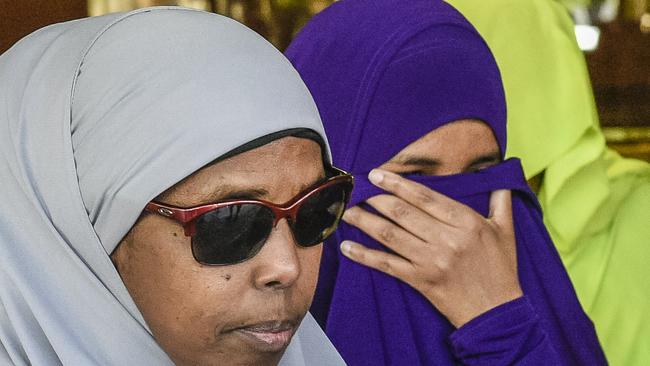
She subsequently filed an appeal against her conviction citing allegations of judicial “imbalance”.
Abdirahman-Khalif claimed Justice David Peek erred in his directions to jurors and did not address possible “innocent explanations” for her behaviour.
It was not her first complaint against Justice Peek – his opening address to the jury pool was labelled “inaccurate and unduly gruesome” by her counsel.
In October 2019 – 891 days after her arrest – the Court of Criminal Appeal overturned the jury’s verdict and ordered Abdirahman-Khalif be acquitted.
Two of the judges agreed Federal law’s definition of “membership” was too broad, while Justice Trisk Kelly dissented, saying her colleagues had “oversimplified” the matter.
The government responded across two jurisdictions, filing a High Court challenge to the acquittal and starting proceedings in the Federal Court.
It sought, and successfully obtained, control orders limiting Abdirahman-Khalif’s movements and employment opportunities due to her connection with IS and its fighters.
It argued, and the court agreed, she was obsessed with violence, naive in the extreme, determined to marry an IS fighter and too mentally weak to resist the group’s orders.
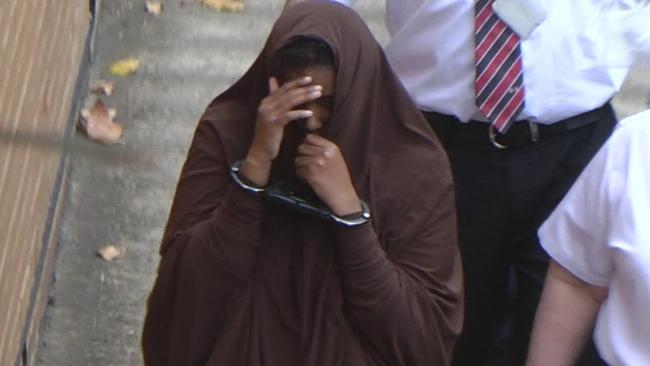
THE HIGH COURT’S DECISION
On Wednesday, by majority, the High Court allowed the Federal Government’s appeal against the original SA ruling.
It held the SA court had “erred in quashing” Abdirahman-Khalif’s conviction.
“(Federal law) defined ‘member of an organisation’ as including ‘a person who has taken steps to become a member of the organisation’,” it said in summary.
“(The SA court found) the evidence adduced at trial was incapable of sustaining the conviction.
“(It said the evidence) did not establish how members of the terrorist organisation were recruited or selected or the process by which members were inducted and accepted into
the organisation.”
The High Court disagreed with that approach.
“It was open to the jury to be satisfied beyond reasonable doubt on the evidence adduced that the respondent intentionally took steps to become a member of Islamic State,” it said.
“The nature and purpose of (anti-terror laws) dictate that they must be taken to extend to groups devoid of structural hierarchy that function in secrecy, with little formality, without a written constitution or set of rules, and without a contractual relationship between members.
“The trial judge’s summing up, though imperfect, was not unbalanced.”
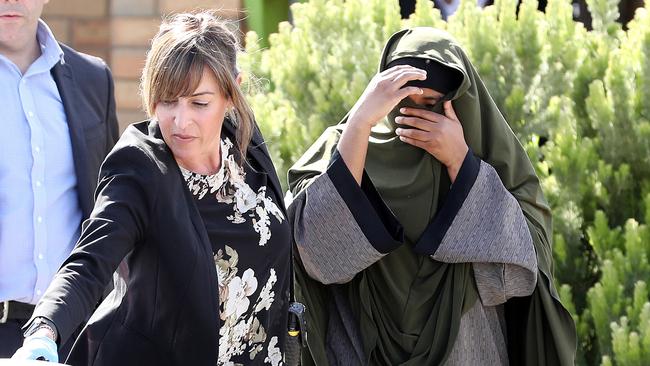
HOW SHE WAS RETURNED TO CUSTODY
Under Australian law, Zainab Abdirahman-Khalif was – from the moment the High Court’s decision was handed down – considered “a prisoner at large”.
That meant she was a person who is subject to a jail term, but is in the community.
Australian Federal Police had to formally seek a Magistrates Court warrant to have her returned to the Adelaide Women’s Prison and resume her original sentence.
Abdirahman-Khalif was first taken to a remand facility – such as a police station or the City Watch House – prior to a hearing in the Adelaide Magistrates Court.
On Wednesday Magistrate Brett Dixon authorised the warrant and Abdirahman-Khalif was conveyed to the Adelaide Women’s Prison.

